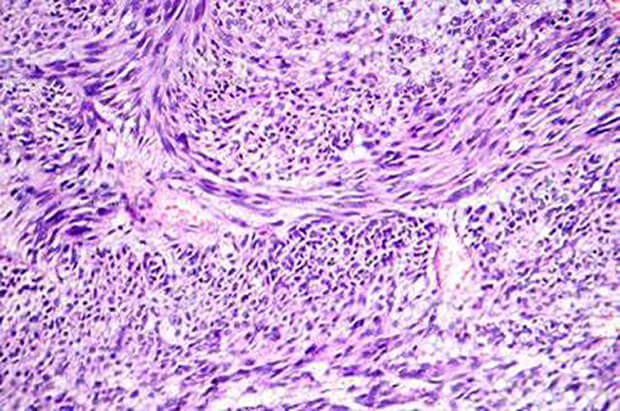So many different factors can play a role in affecting your ability to get pregnant and deliver a healthy baby. One potential factor which affects about 20-50% of women of reproductive age and 50–80% of African-American women is uterine fibroids. They are a common condition and often run in families. If your mother had fibroids, there’s a good chance you might have them, too.
What are Fibroids?
Uterine fibroids are benign (non-cancerous) tumors that occur in the muscle tissue of the uterus. Women usually have more than one fibroid and they vary in size and location; their size is often described by fruit, e.g., the size of a grapefruit. They can change both the size and shape of the uterus and affect the cervix. It is size and location that often affect whether you experience symptoms, experience infertility and need treatment.
There are three major different types of fibroids that differ based on where they are located:
- Subserosal are in the outer wall of the uterus (55%)
- Intramural are found in the muscular layers of the uterine wall (40%)
- Submucosal protrude into the uterine cavity (5%)
Why fibroids develop is still unclear but genetics, hormones, and environmental factors all likely play a role.
The most common way your doctor will determine if you have fibroids and assess their size, number and location is through a physical exam and ultrasound. In some cases, additional imaging tests such as an MRI may be required.
Can Fibroids Cause Infertility?
It’s a complex issue. Estimates suggest that about 5-10% of women facing infertility have fibroids and it is their size and location which may create problems. Fibroids that are very large – greater than 6 centimeters in diameter – and those located inside the uterine cavity are examples of situations where fibroids may affect your ability to get pregnant and deliver a healthy baby. Studies show that in most cases, it is only submucosal fibroids which protrude into the uterus that may affect fertility. There are exceptions including large fibroids that block the openings of fallopian tubes into the uterus.
Most women who have fibroids will not face infertility as a result. If there are problems, a woman and her partner should find out if there are other factors involved prior to seeking treatment for fibroids. Your fertility specialist can evaluate whether fibroids may be an issue and whether any treatment is needed.
How Do Fibroids Cause Infertility?
Uterine fibroids can affect your fertility in several different ways based on how their size and location changes your uterus, cervix or fallopian tubes.
Examples include:
- Fallopian tubes can be blocked by fibroids which makes it challenging or impossible for a fertilized egg to implant.
- Changes in the shape of the cervix can affect the number of sperm that can enter the uterus.
- Changes in the shape of the uterus can interfere with the movement of the sperm or embryo.
- Fibroids can impact the thickness of the uterine lining
- Blood flow to the uterine cavity can also be affected. This can decrease the ability of an embryo to implant in the uterine wall or to develop.
Should I Get Treatment for my Fibroids to Improve my Fertility?
Treatment for fibroids should be based on your individual situation such as the severity of your symptoms and whether there may be other explanations for your infertility. You and your partner should both have a thorough fertility evaluation and discuss the issue with your doctor. While there are many different treatment options only surgery, often minimally invasive, can eliminate any given fibroid permanently. Other treatments that use ultrasound, electrical energy, embolization or medications can often make a given fibroid smaller, but sometimes only temporarily. Furthermore, new fibroids may grow after treatment. There is also disagreement over whether treatment will improve your fertility.
If you are trying to improve your fertility vs. relieving symptoms, research to date only supports treatment for submucosal fibroids as it does result in increased pregnancy and live birth rates.
Research is weak and does not support treatment for other types of fibroids based on comparing outcomes for pregnancy and live birth rates for women receiving treatment and those not receiving treatment.
Can Fibroids Affect My Pregnancy?
Can you get pregnant with fibroids? It’s a good idea to keep an eye on fibroids during pregnancy because they may grow larger and create complications. Only 2-12% of pregnant women have fibroids and if they do grow, it will most likely be during the first 12 weeks. For more information about how fibroids may affect your pregnancy click here and here. Fibroids affect many women, often at an age when they are trying to get pregnant. Research shows that the rate at which fibroids alone cause infertility is quite low and most often related to submucosal fibroids.
If you think you have fibroids, you should see your doctor for a diagnosis and, if found, have an assessment of their size, number and location. If you have fibroids and you and your partner are having problems getting pregnant, you should both have a fertility work-up to look at all possible causes including fibroids. Whether it is worth seeking treatment for fibroids before other treatments such as in vitro fertilization (IVF)depends on your unique situation. Your doctor can help you evaluate the options that are best for you.


